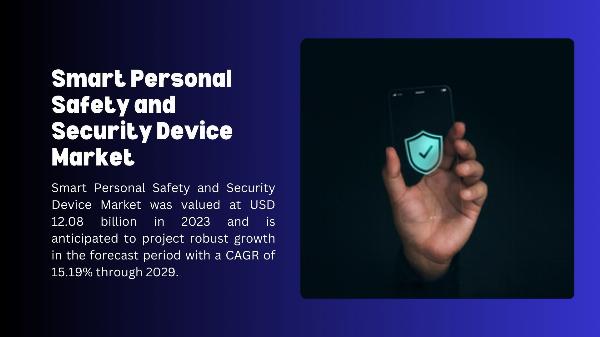Proof of Personhood: Inside the companies reinventing digital identity for Web3

Proof of Personhood: Inside the companies reinventing digital identity for Web3 originally appeared on TheStreet.
You don’t notice identity until it fails. Until the login doesn’t work, the KYC flags, or the system freezes because some server in some jurisdiction doesn’t recognize you. That’s the problem decentralized identity is trying to erase.
The crux of decentralized identity (DID) is about who controls verification. Today, identity flows through banks, governments, and platforms that monetize your data in exchange for access. DID flips it. Credentials become portable. Verification happens cryptographically. You own your proofs. You disclose only what you choose to disclose. Nothing more.
The implications run deep. Compliance, finance, healthcare, AI, cross-border commerce — none of it scales without trust. And right now, trust is centralized, fractured, and increasingly fragile. Fraud is accelerating. Synthetic identities are cheap to manufacture. Verification costs are rising. Regulators know it. Enterprises know it. DID offers a quiet exit ramp.
Backend scaffolding for identity is coming together, locking into place. Composable frameworks slotting into banks, SaaS platforms, DAOs, and government stacks. Silent infrastructure. Open rails. No token games. Just trust, rebuilt from first principles.
And as tokenized capital markets accelerate, as AI agents start executing on behalf of humans, as decentralized systems mature, identity becomes paramount.
Let's take a look at 3 companies currently navigating the sector.
CIVIC
Proving you're human shouldn’t mean handing over your life. Civic builds verification without the data drain.
“As digital identity experts, our goal is to give people more control over their identities,” says CEO Chris Hart. “We provide businesses with tools that give people more consent over what information they're sharing.”
With over one million Civic Pass credentials issued, users verify themselves by completing a CAPTCHA or video selfie — no passports, no government IDs.
“We work hard to ensure portability and reusability of credentials across chains and applications,” Hart says.
Story ContinuesThe problem Civic is solving is only getting worse: AI-generated fraud. Bots mimicking humans, infiltrating systems.
“This is important because bad actors sometimes use AI pretending to be human in order to commit fraud,” adds Hart.
Instead of over-collecting data, Civic strips verification down to its core.
“Civic Pass allows businesses to check for humanity instead of requiring an ID document, which allows a transaction to proceed with a minimal amount of information exchanged,” the CEO highlights.
Less data exposure. Same outcome. The way identity should work in Web3.
SPACE ID
SPACE ID has locked in over 6.7 million domains across BNB, Arbitrum, Ethereum, and Story Protocol — but it’s not just slinging vanity handles. Every domain is wired for function.
“Everyone’s talking about identity. We’re building the infrastructure,” says SPACE ID CEO Alice Shikova.
Payment ID makes wallet spaghetti obsolete.
Payment ID makes sending crypto as easy as @yourname.
You want yourname@bybit? That’s your address.
Cross-wallet, cross-exchange, no more copy-paste roulette. And with MetaMask Snap integration, domain-based payments slot directly into Web3’s most widely used wallet.
“We’re not just handing out vanity tags. We’re building the most usable, interoperable, agent-ready ID system in Web3,” Shikova says.
While others chase scale, SPACE ID’s chasing surface area:
“SPACE ID isn’t just scaling up—we’re scaling out. Our strategy is horizontal expansion: more chains, more use cases, more utility. Why? Because real adoption comes from utility, not hype,” Shikova continues.
Already embedded across 200+ dApps, the next phase fuses AI into the stack:
“We’re fusing DeFAI by giving AI agents and AI services the infrastructure they currently lack—names, payment rails, and seamless execution. That’s what we’re actively exploring and building,” Shikova underlines.
WALT ID
WALT ID has been in the game early — open-source, all-in-one infrastructure powering governments, enterprises, and over 20,000 developers worldwide.
“Walt.id has been among the first companies in the decentralized identity space and built a powerful, all-in-one open-source infrastructure used by more than 20,000 developers as well as governments and businesses around the globe,” says CEO Dominik Beron.
While others obsess over compliance checklists, WALT ID took a developer-first approach.
“While everyone is looking to build holistic, standard and regulatory compliant solutions (we do all that too), one of the things that makes us unique is our open-source strategy,” Beron adds.
It’s infrastructure, not an app. A platform for builders:
“We are building a development platform — infrastructure for dev and product teams — to power large organizations and new SaaS platforms and services,” Beron underscores.
SDKs. APIs. Full composability. WALT ID’s stack lets governments, enterprises, and startups deploy credential-based identity without vendor lock-in. Quietly becoming the scaffolding everyone else builds on.
Proof of Personhood: Inside the companies reinventing digital identity for Web3 first appeared on TheStreet on Jun 26, 2025
This story was originally reported by TheStreet on Jun 26, 2025, where it first appeared.
In Proof of Personhood: Inside the Companies Reinventing Digital Identity for Web3, authors delve into how businesses are reimagining our online selves in a world embracing decentralization, providing insights essential to unlock potential and security within this emerging paradigm.




![Isothermal Bags Containers Market [2028]: Top Trends, Size, and Competitive Intelligence - TechSci Research](https://antiochtenn.com/zb_users/upload/2025/07/20250719012446175285948669203.jpg)









